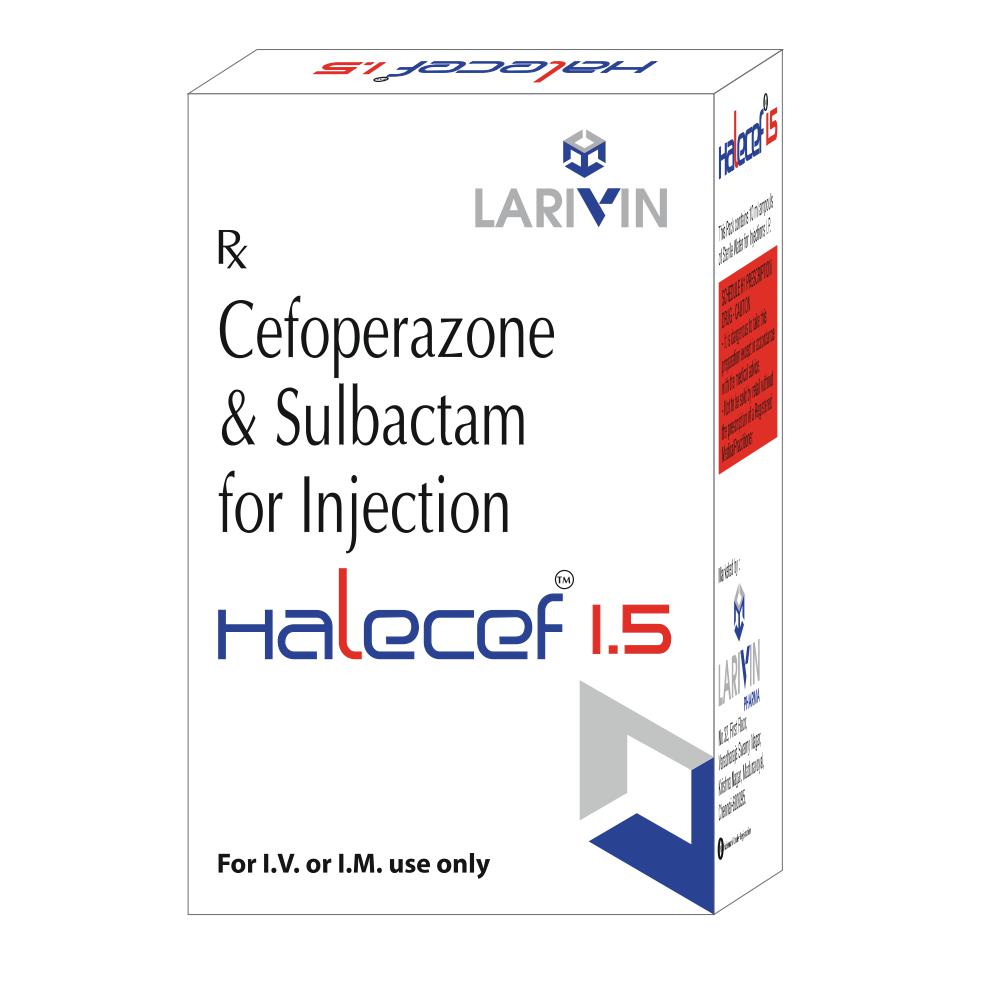- 044-24812581
- Plot No 15, 27th Street, Natesan Nagar, Maduravoyal, Chennai 600095
- +91 7845883586
- info@larivinpharma.com
HALECEF 1G / 1.5G / 2G / 3G




For Hale & Healthy Life…
Halecef 1.5, 1, 2, 3gm
Cefoperazone & Sulbactam (I.V/I.M) Injection
Cefoperazone and Sulbactam: A Powerful Combination
Cefoperazone is a third-generation cephalosporin antibiotic, and sulbactam is a beta-lactamase inhibitor. When combined, they form a potent antibiotic combination that is effective against a wide range of gram-negative bacteria, including those that are resistant to other antibiotics.
Advantages of Cefoperazone and Sulbactam
- Broad Spectrum: Effective against both gram-positive and gram-negative bacteria.
- Resistant Strains: Can be used to treat infections caused by resistant strains, such as extended-spectrum beta-lactamase (ESBL)-producing Enterobacteriaceae.
- Cost-Effective: Often considered a cheaper alternative to meropenem, especially in countries with limited healthcare resources.
- Synergistic Effect: The combination of cefoperazone and sulbactam enhances the antibiotic’s activity and helps to overcome bacterial resistance.
Indications for Cefoperazone and Sulbactam
- Respiratory Tract Infections: Pneumonia, bronchitis
- Intra-Abdominal Infections: Peritonitis, abscesses
- Urinary Tract Infections: Cystitis, pyelonephritis
- Skin and Soft Tissue Infections: Cellulitis, abscesses
- Septicemia: Bloodstream infections
- Gynecological Infections: Pelvic inflammatory disease, endometritis
- Meningitis: Inflammation of the meninges (the protective membranes surrounding the brain and spinal cord)
- Bone and Joint Infections: Osteomyelitis, arthritis
- Infections in Neutropenic Patients: Patients with low white blood cell counts
Dosage
The dosage of cefoperazone and sulbactam varies depending on the severity of the infection, the patient’s weight, and renal function. Consult a healthcare professional for specific dosing instructions.
General dosage guidelines:
- Adults: 2-4 grams per day in divided doses.
Precautions
- Hypersensitivity: Do not use if allergic to cephalosporins or penicillins.
- Renal Impairment: Dosage adjustment may be necessary in patients with kidney problems.
- Bleeding: May increase the risk of bleeding in patients taking certain medications (e.g., anticoagulants).
- Superinfection: Can lead to overgrowth of resistant bacteria.
Disclaimer: This information is for general knowledge only and should not be considered medical advice. Always consult with a healthcare professional for personalized guidance.
